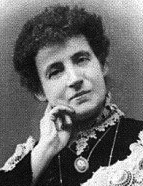

The positivist scientific canon formed an integral part of her philological work, especially in the shape of the categorisation operation – of the division into groups rendered homogeneous with resort to a rule-based taxonomy in which the separation of essences appears inevitable. Thus we come up against the problem of authorship, which surfaces in both her extensive works and her minutely detailed notes. In the late 19th century, the idea that only one person could be responsible for writing a given piece of literature was becoming fully accepted. From the moment she wrote what can be considered the first scientific study on literature to be produced on Portuguese soil (Poesias de Francisco de Sá de Miranda, [Poetry of Francisco de Sá de Miranda], 1885), Carolina set herself the task of discerning authorships and establishing dates. She looked for the truth by ruling out crass errors, eliminating from the supposed Camonian repertoire pieces that had been written before Camões was born, and facing up to some perfect mysteries, such as the anagrammatic Crisfal – was it an eclogue by Cristóvão Falcão? The same movement led her to discover and face homonymic problems that were commonplace in peninsular literature. Cases of two different people, such as the regent Dom Pedro, Duke of Coimbra, who was confused with his own son, who was in fact the real author of Tragédia de la insigne reina Doña Isabel (Uma obra inédita do Condestável D. Pedro de Portugal, 1899), or on the contrary of a single individual – one example being Gil Vicente, who turned out to be both a playwright and a goldsmith (Notas Vicentinas, vol. II, 1918) – were also unravelled using a literary criticism methodology. Carolina believed the truth can be found by looking at the very soul or psyche, which in turn leads us on to the existence of a collective being. For her, the question of authorship became one of whether a work was produced by a Portuguese, of whether it was an originally Portuguese form of expression or not; not just because many Portuguese authors wrote in other Iberian languages, especially Spanish, but also taking into account their literary style (usually imported and adapted) and the use of topics with an exclusively Portuguese nature. She would finish her investigation by looking at the act of writing itself – at the end of the day, looking at grammar as the last redoubt of the Portuguese cosmovision.
This was one axis along which to interpret the Ajuda manuscript, which is a national heritage treasure from the 13th-14th centuries. Seen from this perspective, the possibility that a Spanish scribe was behind the centuries-old folios gradually lost weight in favour of the evidence that they had been written by various hands, which was supported by a comparative observation of the orthography as a representation of speech. Carolina advanced hypotheses of semantic evolution within a comparative framework of the Iberian languages. The very way in which the work was written was analysed with an argumentation that was logical, hard-fought, letter by letter, phoneme by phoneme, word by word, until she was peremptory: “I have no hesitation in considering the writing of the Ajuda Codex to be the original Portuguese” (Cancioneiro da Ajuda, vol. I, p. XIV, no. 5). Carolina’s “Lusism” can be seen in this historiography of the word, based on the idea of the expression of a Portuguese psyche, which is another way of saying a national soul – somewhat similar to what Teixeira de Pascoais tried to do for philosophy with “saudosismo”. This feature is repeated in many of her studies, from the Portuguese production of Palmeirim de Inglaterra to the narrative mosaic of the loves of Inês de Castro and King Pedro in Saudade Portuguesa.
